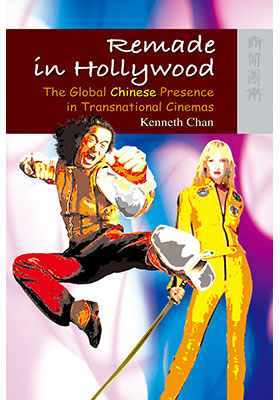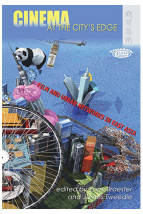Remade in Hollywood
The Global Chinese Presence in Transnational Cinemas
(荷里活再造:華人在跨國電影業的成就)
ISBN : 978-962-209-055-2
July 2009
272 pages, 6″ x 9″
Ebooks
Also Available on
The dramatic surge of Chinese visibility in Hollywood has been spurred by Sino-chic talents such as directors Ang Lee, John Woo, Wong Kar-wai, Wayne Wang, and Zhang Yimou, and stars such as Jackie Chan, Jet Li, Chow Yun-fat, Gong Li, Zhang Ziyi, and Michelle Yeoh. Analyzing well-known films by Chinese stars and crew, and the influence they have had on Hollywood directors, Kenneth Chan describes how post-1997 notions of Chinese identity and cultural genres have been reinvented and repackaged by major US studios. Highlighting numerous contradictions and cultural anxieties evident in transnational Hollywood films, Chan suggests that many Chinese stars and directors have made painful compromises to get their films successfully launched into the global capitalist stream of cultural commodities.
“Remade in Hollywood impressively updates the cross-cultural flow of capital, cast and crew between cinemas to highlight the global Chinese presence in post-1997 American films. Erudite and sophisticated in its analysis, this book is a timely contribution, not only as a study of Chinese cinemas in an era when the People’s Republic of China is poised to become the next global superpower, but also as an understanding of Hollywood as a magnet that continues to attract talent from abroad and, in the process, facilitates a global cultural flow that runs in many directions between these locales. This accessible volume will be valuable resource for scholars and students in film studies, cultural studies, Chinese studies, and Asian-American studies.” —Song Hwee Lim, University of Exeter
“Kenneth Chan examines the ways Chinese and Chinese American filmmakers grapple with issues of racialization, orientalist stereotypes, diasporic identity, gender politics, and global market forces in their efforts to project China in their Hollywood-produced or distributed films. He convincingly suggests that the China represented in these films was marked by contradictions, ambiguities and uncertainties as a result of these transcultural negotiations. He is also convincing in insisting that a deeper understanding of ‘Chinese cinema in Hollywood’ has to be situated in the complex context of Chinese film traditions and Chinese American cultural politics.” —Poshek Fu, University of Illinois




